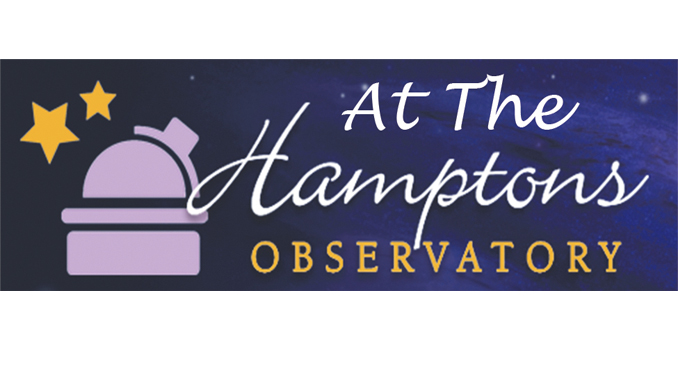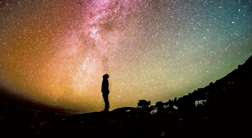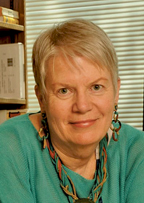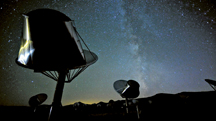
Upcoming Free Virtual Lectures…

“HIGHLIGHTS OF THE FALL SKY”
Sunday, November 6, 2022, 2-3pm
SPEAKER: William Francis Taylor, NASA Solar System Ambassador
CO-HOST: Friends of the Long Pond Greenbelt
Registration is required: https://bit.ly/Sky-Talk
Hamptons Observatory, and co-host Friends of the Long Pond Greenbelt, are pleased to present a free, virtual lecture by Hamptons Observatory’s Senior Educator and NASA Solar System Ambassador, William Francis Taylor.
 What makes the days shorter, the nights longer, and the air cooler? And what heavenly bodies and celestial events can we observe for the remainder of the year? In this free virtual (Zoom) event, we will discuss the seasons, such special events as meteor showers and the total lunar eclipse on November 7th – 8th, as well as planets that will be visible (especially Saturn and Jupiter). William will also provide an illustrated update on the James Webb Space Telescope (JWST).
What makes the days shorter, the nights longer, and the air cooler? And what heavenly bodies and celestial events can we observe for the remainder of the year? In this free virtual (Zoom) event, we will discuss the seasons, such special events as meteor showers and the total lunar eclipse on November 7th – 8th, as well as planets that will be visible (especially Saturn and Jupiter). William will also provide an illustrated update on the James Webb Space Telescope (JWST).
Hamptons Observatory Senior Educator, William Francis Taylor, has been a NASA/JPL Solar System Ambassador since 2014, lecturing about the universe around us and sharing his love of the heavens by giving guided tours of the sky through telescopes. He is a life-long East End resident.
Hamptons Observatory would like to thank Friends of the Long Pond Greenbelt for its kind collaboration, and William Francis Taylor for sharing his expertise.
“A Cosmic Perspective: Searching for Aliens, Finding Ourselves”

Thursday, November 10, 2022, 7-8pm
SPEAKER: Dr. Jill Tarter, Emeritus Chair for SETI Research
CO-HOST: Suffolk County Community College
Registration is required: https://Tarter-Talk.eventbrite.com
Hamptons Observatory, and co-host Suffolk County Community College, are honored to present a free, virtual lecture by Dr. Jill Tarter.
Are we alone? Humans have been asking this question throughout history. We want to know where we came from, how we fit into the cosmos, and where we are going. We want to know whether there is life beyond Earth and whether any of it is intelligent.
Since the middle of the twentieth century we have had new tools that permit us to embark on a scientific exploration to try to answer this old question. We no longer have to ask the priests and philosophers what we should believe about extraterrestrial life; we can explore and discover what’s actually out there. Our tools are getting ever better. We have discovered extremophiles in the most unexpected places on this planet and we have discovered that there really are more planets than stars out there. We haven’t yet found life beyond Earth. Evidence for extraterrestrial life may turn out to be ambiguous, as illustrated by the recent debate over the claim of Phosphine in the clouds of Venus, and whether this might imply biology. Evidence for technosignatures could be less ambiguous. There is a vast amount of other potentially-habitable real estate to explore beyond our solar system, and there are many plans to do just that. The 21st century will be the century in which we will find some answers.
As we look up and look out, we are forced to see ourselves from a cosmic perspective; a perspective that shows us as all the same, all Earthlings. This perspective is fundamental to finding a way to sustain life on Earth for the long future.
Dr. Jill Tarter is renown for her pioneering work as a researcher at and co-founder of the SETI Institute, where she is now Emeritus Chair for SETI Research and a Trustee. Many know her as the person who inspired the character played by Jodie Foster in the movie, Contact. Dr. Tarter has spent the majority of her professional career attempting to answer the age-old question, “Are We Alone?” by searching for evidence of technological civilizations beyond Earth. She served as Project Scientist for NASA’s SETI program, the High Resolution Microwave Survey, and has conducted numerous observational programs at radio observatories worldwide. In 2004, she was named one of the Time 100 Most Influential People in the World and, in 2012, one of the Time 25 in Space. She received a TED prize in 2009, two public service awards from NASA, and multiple awards for her contributions to science and science education.

In 2021, she was elected to the American Academy of Arts & Sciences. Asteroid 74824 Tarter (1999 TJ16) was named in her honor. Since the termination of funding for NASA’s SETI program in 1993, she has served in a leadership role to design and build the Allen Telescope Array and to secure private funding to continue the exploratory science of SETI. Her biography, Making Contact, was written by Sarah Scoles and published in 2017.
Our deepest thanks to our speakers, our co-hosts and to you for supporting Hamptons Observatory by attending our events! To view past lectures, visit our YouTube channel: www.bit.ly/ObservatoryVideos
Nature has its own special events lined up in the coming weeks:
A Total Lunar Eclipse will occur Nov. 7-8th, starting at about 3:00 AM, ET, and reaching maximum at 6:00 AM.
Orionid Meteor Shower: they’re currently active and will peak overnight Oct. 20-21. The moon will be about 21% full so you have a good chance of seeing them then.
The Southern and Northern Taurid Meteor Showers will be active through December 2nd, but the moon will be over 85% full on the nights of their peaks (Nov. 4-5th and Nov. 11-12th, respectively).
The Leonid Meteor Shower, which normally produces 10-15 meteors/hour but sometimes produces storms of hundreds or even thousands of meteors, will span Nov. 3rd – Dec. 2nd, and peak Nov. 17-18th; the moon will be 36% full that night.
For information: www.hamptonsobservatory.org • www.facebook.com/HamptonsObservatory/
Hamptons Observatory (HO), a 501(c)(3) NYS nonprofit that relies on public support, has served the community since 2005. Its mission: to foster interest in science, particularly astronomy, through educational programs. Lectures, star parties, portable planetarium shows and other events are held, often in collaboration with other organizations.
Hamptons Observatory offers all of its programs free-of-charge so that everyone can learn about and enjoy the universe around them. To make a tax-deductible donation to support our mission, please go to www.HamptonsObservatory.org and click on Donate. Thanks!
Please make Hamptons Observatory your favorite charity so that, when you shop Amazon, they will donate 0.5% of your eligible purchase total to us; doing so will cost you nothing, but it will help keep our organization afloat. Go to the link to designate us as your favorite charity:
https://smile.amazon.com/ch/20-3431833

